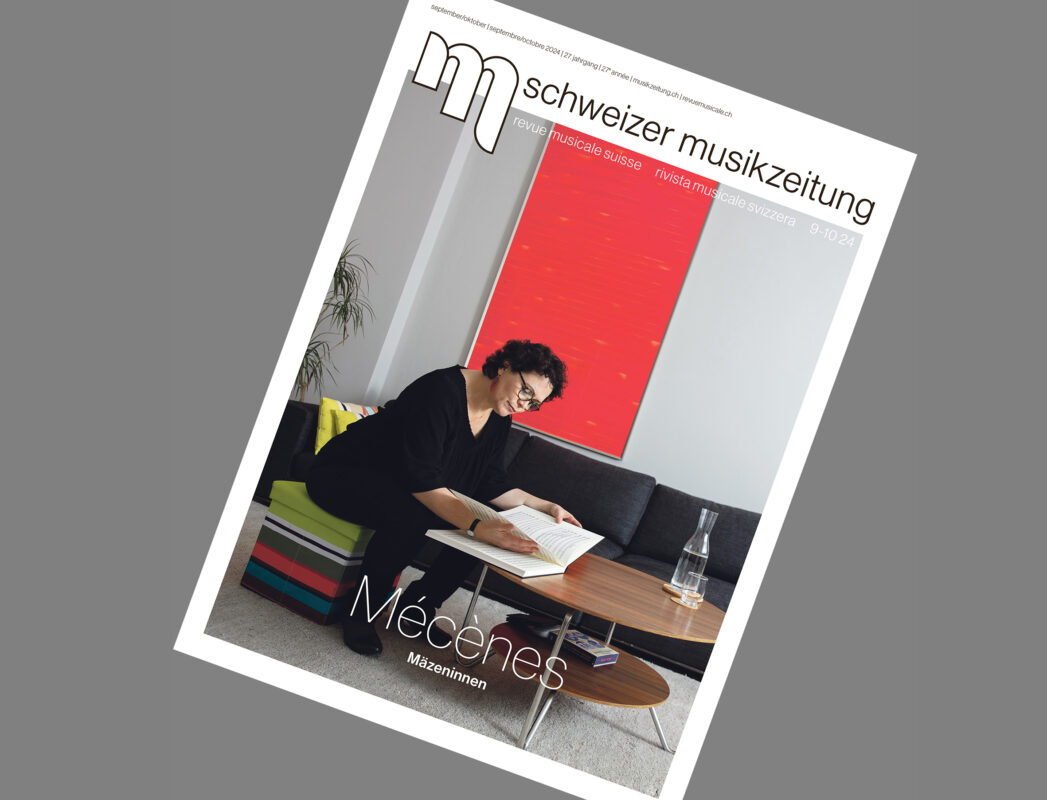The freedom of the contemporary
Philippe Bach conducts several orchestral formations in Switzerland and Germany. Although he likes to include Beethoven and Brahms in his programs, he is particularly fascinated by the music of the 20th century and today's composers.


Philippe Bach conducts several orchestral formations in Switzerland and Germany. Although he likes to include Beethoven and Brahms in his programs, he is particularly fascinated by the music of the 20th century and today's composers.
Philippe Bach was born in Saanen in 1974; he studied orchestral conducting in Zurich and Manchester. He has been General Music Director of the Meininger Hofkapelle and the Südthüringisches Staatstheater Meiningen since 2011. He has also been chief conductor of the Zug Sinfonietta since 2009 and the Bern Chamber Orchestra since 2012. He has made guest appearances at the Teatro Real de Madrid and the Hamburg Opera, as well as with the London Philharmonic Orchestra, the BBC Philharmonic Orchestra, the Helsinki Philharmonic Orchestra and the Royal Scottish National Orchestra.
Laurent Mettraux: The Bern Chamber Orchestra (BKO) regularly commissions compositions and premieres works. How does this benefit the musicians of the orchestra?
Philippe Bach: Performing new music by Swiss composers has been an important part of the BKO's programs from the very beginning. I think this is a wonderful tradition that should definitely be continued. The exchange with living composers is extremely inspiring for me as a conductor and for the orchestra and makes a wonderful change, as we classical musicians mostly have to deal with music by deceased composers. I miss the pride in our composers in Switzerland. Martin, Honegger and Schoeck are held in high esteem all over the world, but very little of their music is played in Switzerland because it is said to be difficult to sell the concerts. But if we don't look after our composers, this won't change. I hope that one day they will be as well established as Sibelius in Finland or Elgar in England.
You have recently been appointed General Music Director in Meiningen. What is it like to hold a post so steeped in tradition? And do you plan to perform pieces that have been written for this orchestra over the course of its 300-year history?
Meiningen is really something special, there is the quote from Mahler: "Normally there is a town with a theater, but Meiningen is a theater with a town." Although the town only has around 25,000 inhabitants, around 160,000 people come to the theater every year, so the town lives from the theater. This positive atmosphere is naturally transferred to all employees and especially to the musicians of the Meininger Hofkapelle, who have a great love of playing. Great conductors have left their mark. Conductors such as Bülow, Strauss, Steinbach, Reger and, more recently, Petrenko, Buribayev and my predecessor Hans Urbanek have done great work. Of course, we regularly play Brahms' Symphony No. 4 and Reger's Mozart Variations, which were premiered in Meiningen, but we also perform works by lesser-known composers such as Wilhelm Berger and Günter Raphael. In addition, we have always cultivated and maintained contact with contemporary composers, especially during the GDR era. History must live on. Both the musicians and the audience are aware of this, which is why we play a relatively large amount of new music compared to other German orchestras.
The works you have conducted reveal a particular interest in the 20th century. What is it that particularly attracts you?
Of course I like conducting Beethoven and Brahms, but I also like Bartók or Adès. I think it's very important that the orchestral musicians are really challenged from time to time, which is not the case with all groups in the classical-romantic repertoire - I'm thinking of the percussionists, for example. I feel very free in this repertoire, because no orchestral musician (or critic) has a preconceived opinion, you are then much less exposed to the various expectations and can let your imagination run wild. I also find it very exciting at the moment, because you can no longer say that this is how people compose today, there are so many different trends in new music.








